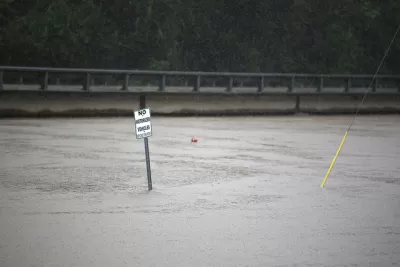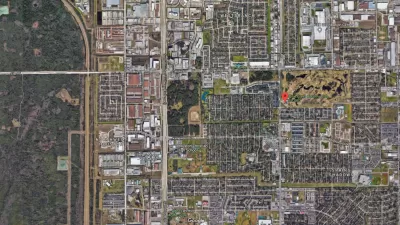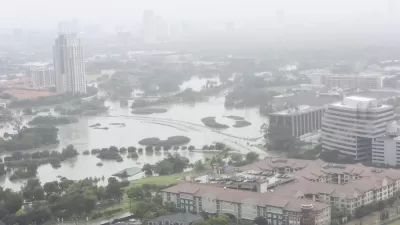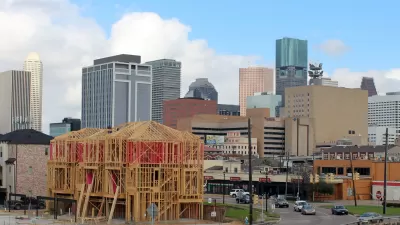Zoning might not have saved Houston from Harvey, but a strong floodplain ordinance would have, according to an opinion piece published in the Houston Chronicle.

John S. Jacob advocates for a stronger floodplain ordinance in Houston—to prohibit or control the development floodplains. First, however, Jacob distinguishes between zoning (Houston famously lacks zoning) from land use regulation. That's important, according to Jacob, because "[m]unicipalities in Texas have the power to limit development in areas that they consider a threat to human health and safety."
So, Houston also had the tools that could have prevented a lot of Hurricane Harvey's worst effects:
There is sufficient volume in our floodways and floodplains (100-year, 500-year, and beyond) to have handled a storm like Harvey. There is more than sufficient land outside the floodplains for all the current and future projected development in Houston. There was nothing inevitable about the impacts from the flooding caused by Harvey. A floodplain ordinance early on in our history could have kept development out of them. Development outside of the floodplains could have proceeded as helter-skelter as Houston would have wanted.
Jacob is responding most directly to comments by Mayor Sylvester Turner, who defended the city's lack of zoning by saying it wouldn't have helped prevent the flooding in the wake of Hurricane Harvey. To be fair, Mayor Turner was responding to outside voices looking to score political points in the wake of Harvey. However, Jacob think it's important to reframe the points made by Turner by thinking about Houston's potential to regulate development—zoning or no.
FULL STORY: Does Houston need a stronger floodplain ordinance?

Alabama: Trump Terminates Settlements for Black Communities Harmed By Raw Sewage
Trump deemed the landmark civil rights agreement “illegal DEI and environmental justice policy.”

Study: Maui’s Plan to Convert Vacation Rentals to Long-Term Housing Could Cause Nearly $1 Billion Economic Loss
The plan would reduce visitor accommodation by 25% resulting in 1,900 jobs lost.

Planetizen Federal Action Tracker
A weekly monitor of how Trump’s orders and actions are impacting planners and planning in America.

Waymo Gets Permission to Map SF’s Market Street
If allowed to operate on the traffic-restricted street, Waymo’s autonomous taxis would have a leg up over ride-hailing competitors — and counter the city’s efforts to grow bike and pedestrian on the thoroughfare.

Parklet Symposium Highlights the Success of Shared Spaces
Parklets got a boost during the Covid-19 pandemic, when the concept was translated to outdoor dining programs that offered restaurants a lifeline during the shutdown.

Federal Homelessness Agency Places Entire Staff on Leave
The U.S. Interagency Council on Homelessness is the only federal agency dedicated to preventing and ending homelessness.
Urban Design for Planners 1: Software Tools
This six-course series explores essential urban design concepts using open source software and equips planners with the tools they need to participate fully in the urban design process.
Planning for Universal Design
Learn the tools for implementing Universal Design in planning regulations.
Caltrans
Smith Gee Studio
Institute for Housing and Urban Development Studies (IHS)
City of Grandview
Harvard GSD Executive Education
Toledo-Lucas County Plan Commissions
Salt Lake City
NYU Wagner Graduate School of Public Service





























